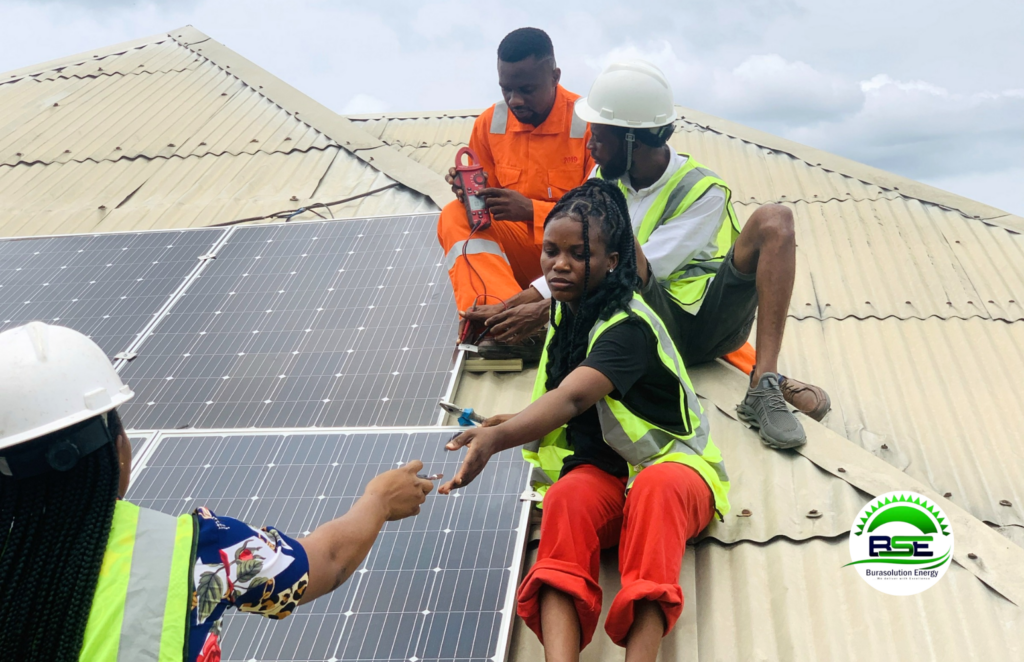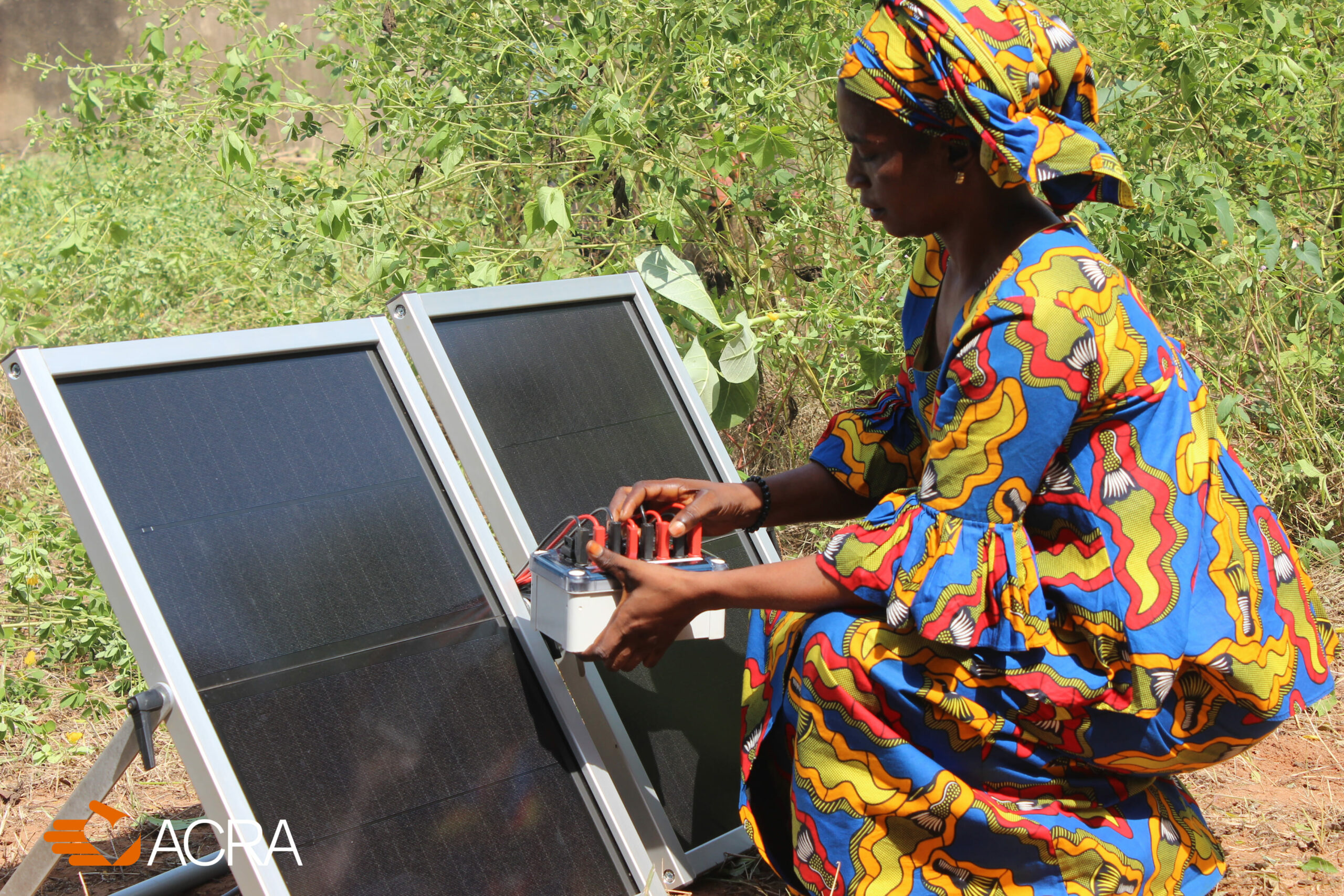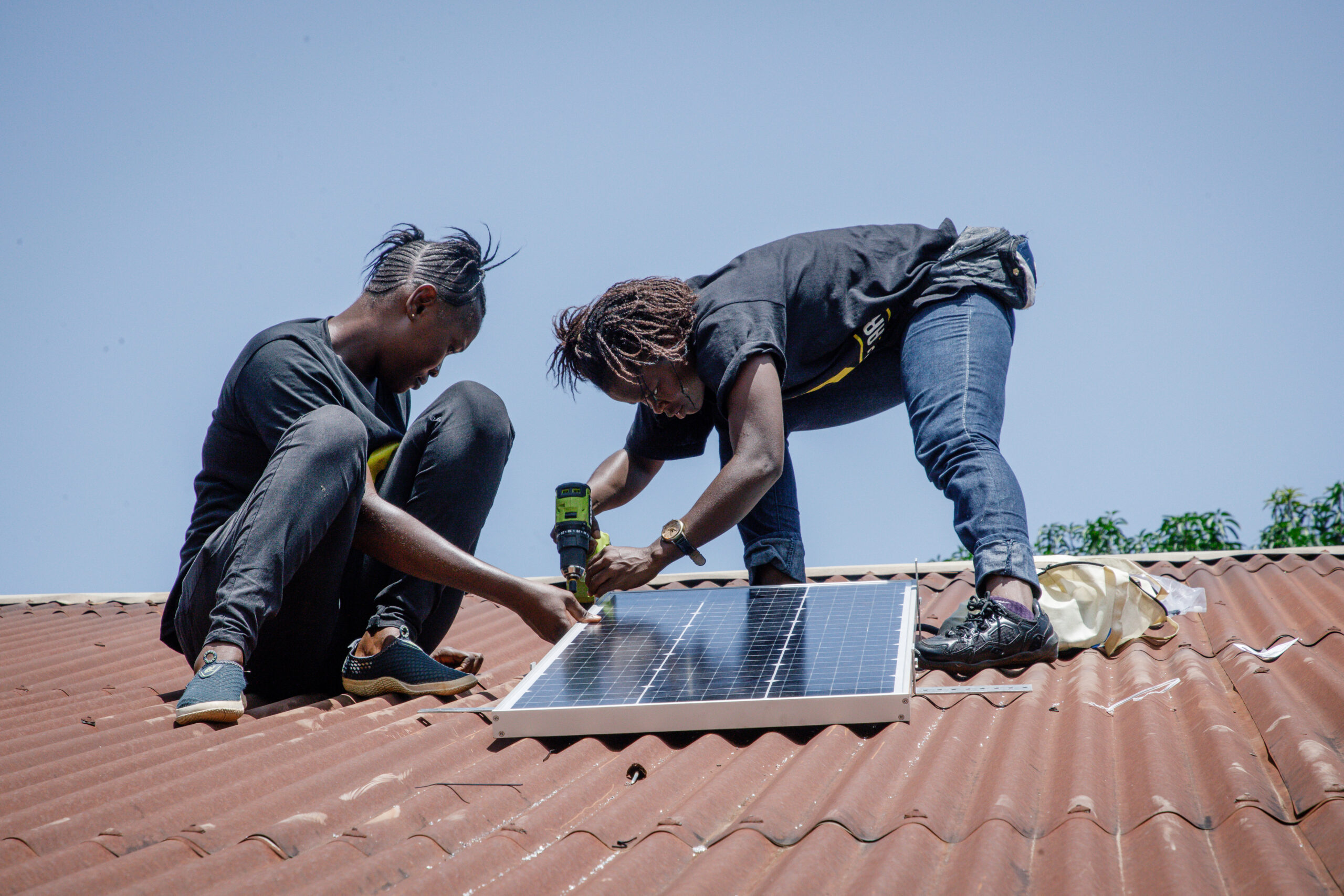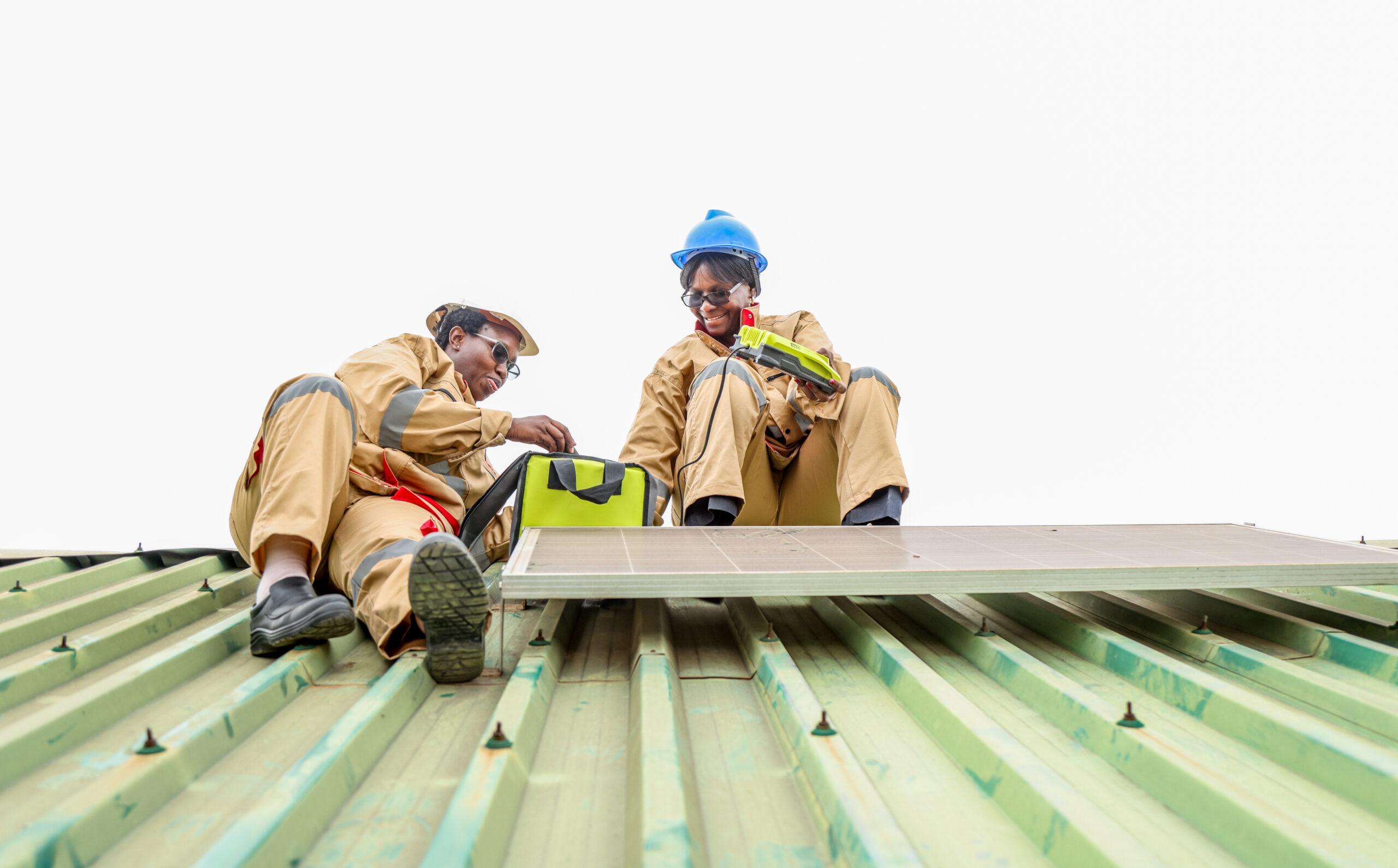Support for skills and training is an essential step to ensuring clean and affordable energy for all. Solar panels, mini-grids, modern cookstoves and other proven technologies can bring power to even the most remote communities – but this won’t happen without trained engineers, salespeople, and many others playing crucial supporting roles.
The biggest skills gap is in sub-Saharan Africa – 600 million people there lack access to electricity, and there are only 76,000 jobs in renewable energy across the continent. Gender inequalities are a huge factor in this skills challenge. Worldwide, only 32% of renewable energy jobs are held by women.
Many frontline organisations are taking a holistic approach to tackle the skills shortage, often working in partnership to achieve impact. Four exciting orgranisations make up the shortlist for the Ashden Award for Skills Powering Energy Access.
They include Nigeria’s Bura Solutions Energy, a clean energy company that has launched the Bura Solutions Academy. The academy offers affordable courses delivering soft and technical skills, including hands-on experience that makes graduates job ready after training – whether they take up a role with Bura Solutions or another employer. Its scholarships are designed to raise the number of women in the industry.

Further west, Italian NGO Fondazione ACRA is working to empower 1,200 women in rural Senegal as clean energy entrepreneurs and technicians. These women sell or maintain technologies used by local households and businesses, from tailors and hairdressers to goat farmers. Crucially, ACRA’s training ranges from basic engineering to business skills.

Electrifying health facilities is another area where progress is held back by skills shortages. NGO We Care Solar has a long history of tackling gender equality by electrifying off-grid maternity services. Its work includes projects in Sierra Leone, where more than 3,000 lives are lost each year from complications of pregnancy and childbirth.
There, a We Care Solar scheme aimed at boosting the number of women technicians includes hands-on ‘labs’ passing on practical skills, and supervised sessions delivering real installations.

Another organisation focused on tackling gender barriers is Kenya’s Women in Sustainable Energy and Entrepreneurship. This network of energy professionals offers technical training and mentoring, providing hands-on installation experience, to help women enter the sector.

At the heart of its work are strong partnerships with local universities, energy companies, NGOs, officials, faith groups and community leaders. These allow it to recruit women and girls from marginalised communities, and link them with practical training and employment opportunities.
Tackling gender inequality and powering Africa’s future are all in a day’s work for these trailblazing organisations.
The Ashden Award for Skills Powering Energy Access is supported by Linkedin.

